Archivist note: This article is from an older recovered archive and might be obsolete or in need of updating.
Most recent revision is shown below, by Kandace Commons.
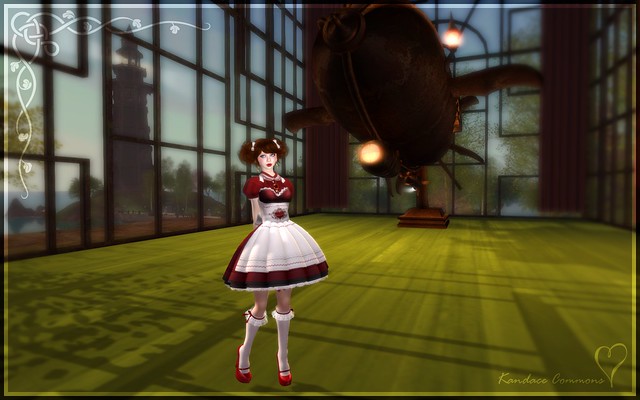
Kandace Commons is a founding resident of The Vernian Sea, Wheatstone Waterways, and Clockhaven. She is most frequently seen using the title “Pharologist.” A Pharologist is an individual who studies or is enthused by Lighthouses. The term Pharologist refers to the famous Pharos Lighthouse of Alexandria.
Most well known in Babbage for the construction of the Vernian Sea Lighthouse, creating Babbage’s land tier management system (rental boards), and being very tactless. Other notable builds in New Babbage include the Lotus of the Sea under the Vernian Sea.
Kandace Commons is also the creator of the Ironclad Combat System in use by the militaries and militias of the Steamlands. The Ironclad Combat System (ICS) is a mostly open-source, freely distributable set of scripts for creating fighting vehicles including ships, submersibles, airships and tanks.
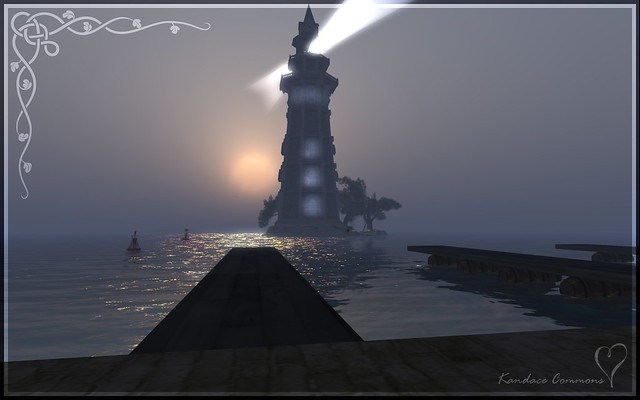
The Vernian Sea Lighthouse now resides in the region of Karoastoff, a region outside of New Babbage. The Vernian Sea Lighthouse was transplanted after personal issues arose between Kandace and [[Shaunathan Sprocket|the first mayor of New Babbage]].
Kandace Commons played a central role in the departure of Shaunathan Sprocket as New Babbage’s first mayor shortly after moving the Lighthouse.
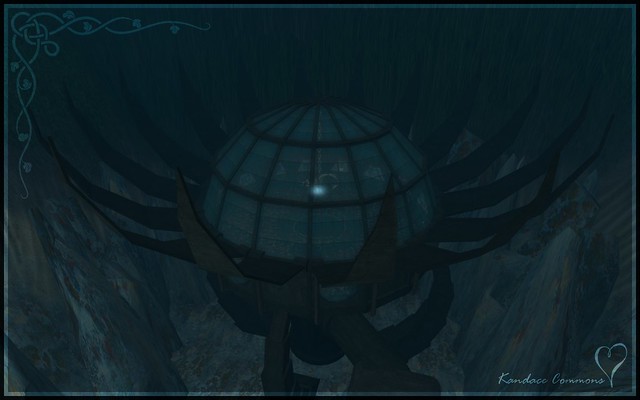
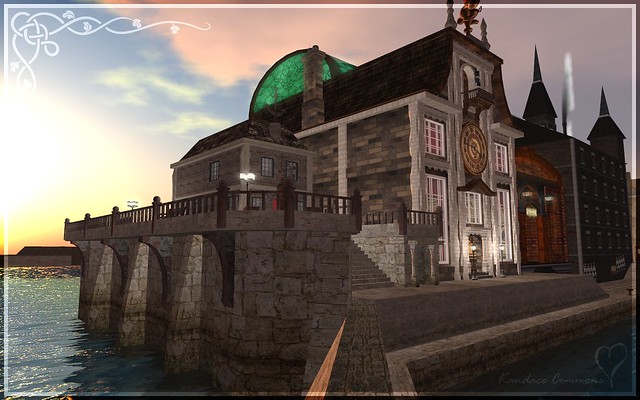
Kandace also served the function of Vice-Mayor during the Mayorship of Shaunathan Sprocket and was enlisted as a member of Bow Street for a time.
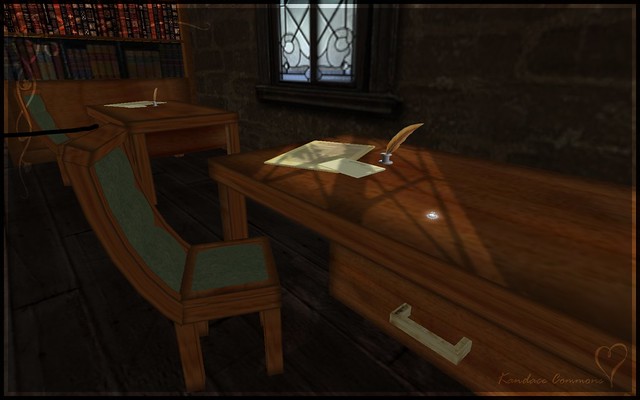
”[19:24] Shaunathan Sprocket: you know, talkingto you is like playing tetris.”
”[19:24] Shaunathan Sprocket: the first time you ever play it, you’re like “what the fuck” and you just get burried.””
”[19:24] Shaunathan Sprocket: but once you learn how to clear a line. you make progress.”
”[19:24] Shaunathan Sprocket: eventually, it’ll turn up the level on you”
”[1:21] Django Camel: This is more like battleship in Braille than Tetris”
Excerpt from Biography:
””’Née Orabelle””’
Chapter 1: Daybreak
My father was a good man, or so I’m told. Loyal, hard working, loved his family and loved his lighthouse nearly as much. Unfortunately for my part, the only memory I retain of him is a face so twisted by grief as to be hardly recognizable as a man. When I thought of him over the years the only feeling that came to me was anger, although this has given way as I grew older to a kind of pity and perhaps even an understanding.
It happened when I was seven. My mother had taken seriously ill and there was no help for her. My father sold everything that wasn’t bolted down to pay for doctors and medicine and food. None of it helped in the end. The doctors tried everything they knew, but whatever it was that had taken hold of my mother was beyond our sciences. Eventually, the lighthouse broke down from neglect as my father spent every waking hour with my mother or abroad searching for new doctors. The light went out one evening, it’s fuel exhausted, a tragic foretelling of things to come. The engine broke down as well, and my father had not the parts or the will to repair it. What did it matter now?
It was the deepest quiet I had ever known. The engine was the beating heart of the lighthouse. For years it had been the relentless pulse of our lives, and now all was still. It was an oppressive and unnatural silence, the only sound was the breaking of the ocean surf upon the rocks that seemed to be miles below. A few days later my mother succumbed to her sickness. My father was there when it happened, by her side, he wouldn’t let go. He held her dead fingers in his through the night. Whether he hoped and prayed or merely sat and saw nothing, I do not know, but he roused suddenly at daybreak and stood up, folding my mother’s hands gently over her breasts. As he turned, he looked at me, but it seemed like he didn’t see me. He made for the ladder to the engine room and began to climb. I thought he was going to repair it! Things would be alright again, they had to be, this eternal night couldn’t last forever. I heard him begin to climb the ladder to the balcony instead. Perhaps he was going to rekindle the light first! I waited. Even at daybreak the light was powerful and I would see it’s brilliance when it was lit once again. Everyone would see it, like a new beacon of hope. What I saw instead was my father hurdling past the third story window where I waited and disappear into the morning fog that shrouded the ocean below.
Suicide is an inherently selfish emotion, one is forced to conclude. Deprived of the two things he loved most in life; my mother and the lighthouse, now dead together; his only thought was to end the mountain of grief and pain that lay on top of him. There was no thought for what he still had, for what he was leaving behind, only for what he’d lost. Later, as I was growing up, I would sometimes reflect on this and be overcome with a sickness in my stomach that made me retch. Did he not love me? Did he not care for me? Care that he had left me alone, to die slowly of neglect next to my mother’s corpse? Fate had taken my mother from me, and there was no-one I could be angry with for that, except perhaps God. My father had taken himself from me, and that seemed almost unforgivable.
I didn’t have long to wait and wonder. An early laboror at the harbor we were supposed to be protecting witnessed the plunge. To him, a tiny yet unmistakable speck leapt off of the lighthouse’s lower balcony, flailed briefly against the pale morning light, and was lost in the fog. The first boat to be mustered was a longboat from a visiting merchantship, plying her wares with local traders. The boat brought the ship’s captain and a local trader he’d been haggling with to the little dock at the lighthouse.
In days past I would have rushed to the dock to greet them with delight! Visitors were always exciting, and sometimes they had sweets they would give to the eager-faced little girl who was trying to help them secure the boat or unload the cargo, but who was mostly in the way. Eventually my father would come down and I would sit on the large root of a nearby tree watching them as they haggled back and forth over the stores we would need for the next month. This time, however, I could only continue staring into the waning fog three stories below. There was a crash as the great front doors were forced open by the longboat crew. It was cold and dark inside, the boiler having long ago run out. They came up the ladder with pistols in hand, not knowing what to expect. Perhaps we had been attacked during the night? That would have been a happier tale.
Instead, they found me.

